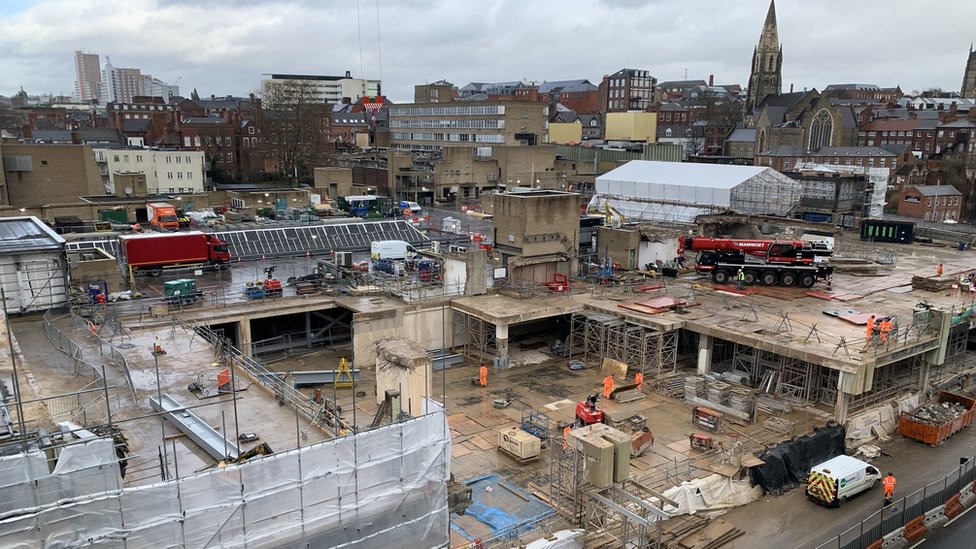What do you do with a modernist building when it isn’t modern anymore?
They don’t age well. They’re hard to adapt to new uses. And, as I argue here, the very idea of conserving this kind of architecture is hypocritical.
One option remains: replacement. But what with?
That’s a question that the burghers of Nottingham have been wrestling with. The Broadmarsh shopping centre is a derelict 1970s eyesore. The Guardian reports on a radical proposal for the site’s redevelopment:
Key features would include “ponds surrounded by reeds, crocus meadows and wet grasslands”.
Normally, an old shopping centre would be replaced by a new shopping centre. But with the big high street names falling like nine-pins right now, that doesn’t seem to be an option. Indeed, the retail operator that was redeveloping the site has gone into administration.
New habitats for wildlife are great, but there’s a hint of fall-of-civilisation here. Our cities have grown up over centuries, if not millennia. Farmers tamed the wilderness and built their barns and cottages. Hamlets turned into villages, which grew into towns. Eventually, the biggest towns became cities. Buildings would have been torn down and rebuilt many times: wood replaced by brick replaced by stone. Yet there would have been continuity too – organic development on a human scale within a familiar pattern of streets.
But, then, after countless generations of evolution, came the revolution. Traditional townscapes were erased, and modernity imposed like an alien monolith.
Now we can see that this brave new world was a dead end. When the walkable, mixed-use, gentle density of a living city is crushed beneath tonnes of concrete, there’s nowhere left to go when it crumbles. One might as well return it to the wilderness. Ashes to ashes. Dust to dust.
I’m far from the first to point this out, but the Bible begins in a garden (Eden) and ends in a city (the heavenly city in the Book of Revelations). Modernism, on the other hand, begins with a city and ends in a wilderness.











Join the discussion
Join like minded readers that support our journalism by becoming a paid subscriber
To join the discussion in the comments, become a paid subscriber.
Join like minded readers that support our journalism, read unlimited articles and enjoy other subscriber-only benefits.
Subscribe